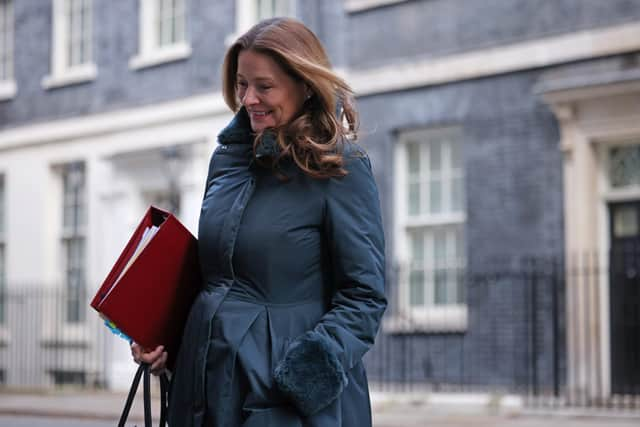Government can't guarantee schools won't close during strike action
Gillian Keegan said introducing minimum service levels would protect “vulnerable children” in schools, but she hoped that the Government’s anti-strike legislation would not be needed for the teaching profession.
Her comments come after the controversial Strikes (Minimum Service Levels) Bill passed its first hurdle in the Commons on Monday.
Advertisement
Hide AdAdvertisement
Hide AdThe Education Secretary is due to meet the NEU on Wednesday in a bid to avert the walkouts which are due to start on February 1, and which the union has said could affect more than 23,000 schools.


Asked on ITV’s Good Morning Britain if she can assure parents that schools will open and children will be able to go to classes on strike days, Ms Keegan said: “I can’t guarantee that but we’ll be working with headteachers to make sure as many schools are open for as many children as possible.”
Paul Whiteman, general secretary of the National Association of Head Teachers (NAHT), said schools could have to shut during walkouts by teachers in England and Wales if “staffing numbers are dangerously low”.
“A school leader’s first priority is always the safety of the pupils in their school,” said Mr Whiteman.
Advertisement
Hide AdAdvertisement
Hide Ad“So if staffing numbers are dangerously low, it may be that leaders have no choice but to be compelled to close schools on safety grounds.”
Yesterday University staff announced that they will walk out on February 1, in the first of 18 days of strike action by the University and College Union (UCU).
The union confirmed last week that it would take part in strikes between February and March in disputes over pay, conditions and pensions.
It comes as it was announced yesterday that train driver members of the Rail, Maritime and Transport union are to join thousands of other workers on strike next month.
Advertisement
Hide AdAdvertisement
Hide AdThe union said its members at 14 train operators will walk out on February 1 and 3.
The drivers’ union Aslef announced earlier that thousands of its members will strike on the same days, while 100,000 civil servants and tens of thousands of teachers will strike on February 1.
Nationwide protests will also be held on February 1 over the Government’s controversial new law on strikes.
New polling today suggested that nearly three in five Britons think the Government is more to blame for the ongoing pay row with nurses lasting so long.
Advertisement
Hide AdAdvertisement
Hide AdSome 57 per cent of people said the UK Government is more at fault for the length of the industrial dispute with nurses, compared to just 9% who said nurses are more at fault.
Thousands of operations and appointments are expected to be cancelled during the two consecutive days of strike action, with the health service likely run a bank holiday-style service in many areas.